
George Turner, Ericka Wiley in the center, before canvassing with some of La Defensa members. Photo by Brenda Verano
More than 26 million potential voters in California will decide on the next president of the United States, senators, Congressional representatives, city council members and ballot measures. Although there are plenty of guides available about these candidates, Californians will also vote for a group of public servants who are often overlooked: judges.
Judicial candidates, specifically judges, can directly impact the lives of the 33 million people in the state, but information about these candidates is rare.
This is where The Defenders of Justice, a campaign led by the Justice PAC by La Defensa, has decided to step in.
Through an advocacy approach campaign known as the Defenders of Justice PAC, one women-led organization is working to reform and improve the landscape of the largest single unified trial court in the United States, the Los Angeles Superior Court.
For years, La Defensa, an LA-based non-profit organization, of which many of its members are Chicana and queer, has worked to divert funding out of the criminal legal system. The organization is also part of the Re-Imagine LA coalition, which supported Measure J, known as Care First, Jails Last, passed and approved by voters in 2020. Measure J is a county commitment to dedicate no less than ten percent of the county’s funding to support alternatives to incarceration, such as youth development, job training, small business development, supportive mental health and housing services, among other things.
With the same vision to shift power away from the carceral system and into the hands of the community, the organization launched the Defenders of Justice Campaign. For two terms in a row, it has supported public defenders running for seats on the L.A. Superior Court judicial bench.
The Los Angeles Superior Court comprises 500 judges operating in nearly 600 courtrooms throughout the county. With an annual budget of $1 billion, the L.A. Superior Court and its judges oversee approximately 2.7 million new cases and trials each year, trials that cover child custody, divorces, contract disputes, theft, murder, juvenile cases and even traffic tickets.
Most superior court judges in California, including those of L.A. County, are first appointed by the governor. After their first six-year term ends, they do not have to run for re-election and win their next term automatically, unless another candidate challenges them, which is when their seat goes up for reelection.

Through the Defenders of Justice campaign, La Defensa’s goal has been to highlight the unique perspective and care-first approach that public defenders can bring to the courts. This year, the La Defensa Justice PAC's Defenders of Justice cohort consists of two public defender candidates, George Turner and Ericka Wiley, who will be on the 2024 ballot.
In an exclusive meeting with CALÓ News, Gabriela Vázquez and Leah Perez, who are co-leading the Defenders of Justice Campaign said that La Denfensa decides to endorse and support candidates that, like them, also seek to address the root causes of crime, such as socioeconomic disparities and mental health challenges, rather than perpetuating a cycle of incarceration.
In addition, they also value those who, once in their judicial seat, promise to remain committed to what they refer to as “restorative justice” and diversion programs. In this process, public defenders aim to rehabilitate people and provide them with the necessary support and resources to reintegrate back into society successfully, even after being part of the criminal justice system. La Defensa has also pushed to diversify the L.A. Superior Court, where the majority of judges are white with a prosecutorial background.
In court, prosecutors represent the government agency that brought criminal charges against a defendant. They are responsible for starting legal proceedings and proving the defendant's guilt in court. In contrast, although they are appointed by the court and work for the state or federal government, public defenders represent the actual people accused of a crime who can't afford a lawyer and may work on multiple cases at once.
Historically, more prosecutors have been appointed to serve as judges in the U.S. Supreme Court, court of appeals judges and federal courts. That is no different on the LA County Superior Court judicial bench, where the majority of the judges have been prosecutors before taking on a bench seat.
In 2019, the Cato Institute, a public policy research organization, determined that former president Donald Trump exacerbated the already substantial disparity on the federal bench.
Trump appointed over twelve times more judges who had worked exclusively as government advocates than judges with backgrounds in criminal defense or plaintiff-side civil rights litigation. Ex-prosecutors outnumbered public defenders and other defense attorneys by more than ten to one among Trump appointees.
La Defensa said the imbalance of prosecutors and public defenders in the county’s superior court is alarming, particularly as 85% of people in California facing charges rely on public defenders, as reported by the Daily Journal.

Gabriela Vázquez. Photo by Brenda Verano
In 2022, La Defensa was behind the Los Angeles election of its first Black public defender, Holly Hancock, who ran as part of the Defenders of Justice's first cohort. Hancock currently serves at the Inglewood Courthouse in misdemeanor trials and her current term will end in January 2029.
With the same promise as Hancock, to prioritize community well-being and support alternatives to incarceration, Wiley, who is running for the L.A. Superior Court seat #48 and Turner, who is running for seat #39, are still knocking on doors around L.A. County to inform people about their candidacy.
In a county where 49% of the population is Latino, only 12% of judges in the Superior Courts of LA County were Latino. The same demographic data, collected by the Judicial Council of California, the policy-making body of California courts, also showed that as of December 2022, 60% of judges in the Superior Courts of L.A. County were male and only 8% were Black.
Despite the county not having many judges who look like them, Turner and Wiley are determined to bring more representation into the county’s courts.
“When you look at the numbers of folks who are actual bench officers, we're talking about an overwhelmingly white, male, overwhelmingly prosecutorial background. I'm not any of those things,” Turner said. “I'm not a white male and I've been a public defender my entire career, [and] why is that important? Well… You have these white male judges from prosecutorial backgrounds making decisions about the lives of the majority Black and Brown folks in a courtroom.”
George Turner, Candidate for L.A. Superior Court Seat #39
Turner, who was born and raised in the City of Inglewood, has worked as a public defender in L.A. County for over 15 years, where he has represented individuals and handled cases including misdemeanors, felonies and juvenile petitions. He is an alumnus of the UCLA Law School, currently in charge of the L.A. County Public Defenders’ Mobile Homelessness Unit, which helps unhoused people get their records expunged, which in many cases can facilitate their process of obtaining interim and permanent housing.
Turner told CALÒ News he became interested in social justice work, which would later transform into work for a public defender’s office, when he was in public school and started seeing the impact of mass incarceration in his neighborhood. “I grew up in the middle of this thing that we call mass incarceration. [In California] over the last half century, we've built 23 prisons and only one college. When you do that, you have large chunks of the community, family, friends and community members, who are cycling in and out of prison,” he said. “I started observing that very, very young.“

George Turner and his mother. Photo by Brenda Verano
Turner says that as a judge, he wants to make sure people, especially youth, are given the right tools needed to be integrated back into the community and be able to decrease the juvenile detention population in L.A. County, where Latinos make up 57% of the detainees.
“I worked in juvenile [court] for about two years and there have been multiple cases where I'm like, ‘If this kid would just have a mentor and some food in his refrigerator, he would be in a very different situation than if we sent him to juvenile hall,’” he said. “I've seen kids at the juvenile hall and come back different than when they left to go to juvenile hall. It doesn't work.“
As of May 2024, four units across three juvenile facilities in L.A. County have been classified as “unsuitable for the confinement of minors” by California’s Board of State and Community Corrections. The first two units were located in Sylmar and Boyle Heights, where most of the population is Latino.
Turner also said that for him, restorative justice is meeting people where they are. “I've had clients who have mental health issues, drug addiction issues, [who] come from poverty, [along with] being undocumented,” he said. “Trying to figure out dispositions that have a positive impact on their lives and help to change their circumstances—that's what I've been as an attorney for the last 15 years before they called that alternatives to incarceration.”
Ericka Wiley, Candidate for L.A. Superior Court Seat #48
Wiley has worked as a deputy public defender for more than 20 years, taking on criminal cases with charges ranging from misdemeanors to capital crimes. Wiley, who was born and raised in South Central L.A., is running for the L.A. Superior Court judge seat #48.

Ericka Wiley will be on the 2024 election ballots. Photo by Brenda Verano
Wiley said it was her mother who pushed her to finish her education and begin her work in the court system to help and bring support to system-impacted individuals. “My mom, who had six kids, really put a lot into us. She supported us by selling second-hand clothes. My mom was an educated woman with two master's degrees,” she said. “She taught us through her own experience and her own life experience that education was key.”
She said her time as a deputy public defender in L.A. County has given her the confidence to jump into running for a seat in the L.A. Superior Court. “After 20 years in the county, I know the ins and outs of the county rules. I come into contact with judges every day,” she said.
“It’s about time,” Wiley said, referring to being one of the few Black women entering into a court that is made up of mostly white men. “Walking into a courtroom and not seeing myself represented on the bench. I think it does something to you subconsciously. It puts you [in] a place subconsciously that this is not a place for you, that it's not the kind of work that you do, that you are not entitled to do or have the ability to do,” she said. “Representation matters. Over the years, I've seen our governor appoint more people of color and that definitely has changed my mind and caused me to stop self-editing and be able to see myself doing that work.”
Wiley also said that for her, restorative justice starts with the court system recognizing that, to improve public safety, the focus cannot just be on punishment itself. “A true path to public safety is to recognize the humanity of people,” she said.
Wiley also talked about the almost two million undocumented people living in California, who in many cases have to visit court because of many different circumstances and talked about the language barriers that the courts all over the state should cater to and instead are often overlooked. “I've seen the impact of the language barrier often in court—the fact that interpreters need to be used to communicate with the defendant,” she said. “Another impactful thing is the immigration status of some of my clients. Often I've seen clients who are facing what I see are defensible cases... but there's an urgency right to get out of jail because being in a locked facility is the easiest way to come in contact with an ICE agent who might be doing a sweep. And so you see people taking deals or pleading guilty to cases that are very defensible in situations where they just have to get out of jail right away because otherwise they're [afraid they’re] going to be deported. That's really been heartbreaking.”
Wiley also said that although evaluating judicial candidates can be a difficult task, especially if you do not know who is on the ballot, it is a practice that should be embedded in young people moving forward. “You're more likely to see me in your community as someone who you elected than your senator and your president. Judges are very much connected to the community. If you get a traffic ticket; if you get a divorce, if God forbid, you get in a situation where your children are going to be removed from your house, you’re going to see someone like me who's making a decision about your life,’ she said. “You certainly don't want to be someone who doesn't have the ability to see you as a person, to understand what your circumstances might be.”
Through in-person interviews, questionnaires and an evaluation committee, the Los Angeles County Bar Association (LACBA) evaluates Superior Court candidates like Wiley and Turner every election cycle. LACBA generates and gives each candidate one of four ratings: “exceptionally well qualified,” “well qualified,” “qualified” or “not qualified.” Both Wiley and Turner have received a rating of “qualified.”
For La Defensa, other qualities, apart from Wiley’s and Turner’s work qualifications were just as crucial when deciding to support and uplift their campaigns.
Vázquez and Perez said the decision to stand behind Wiley and Turner came after many interviews and conversations they had with them about their values and personal ethics. “It was a process,” Perez said. “We got to know them well; we [got] to know their work ethic and just their values. We also had these interviews with them with a lot of team members from La Defensa.”
Both Wiley and Turner were part of the Judicial Leadership Academy, a month-long workshop that taught Wiley and Turner how to run a judicial campaign, something that, according to Turner, is an extra element of their job that is not taught or talked about.
“The decision to become a judge also requires a little bit of knowledge about how the democratic side of running an election works. As a public servant and someone who's just been a public defender for the last 15 years, it can be daunting,“ he said. “Organizations like La Defensa have been very helpful in both giving me the nuts and bolts to how to run a campaign and also encouraging folks to really think outside of the box as public defenders.”
For Wiley, running as part of the Defenders of Justice signifies a union of people committed to supporting the conditions of people when they step foot into court. “It's a natural progression of people of like-minded minds coming together to work for a joint purpose. And that is an improvement for the inclusion of everyone in our court system and to treat everyone with dignity,” she said.
Court Watch LA
One of La Defensa’s goals has also been to bring more light and awareness inside the court, educate people living in L.A. on how their local courts operate and elevate judicial transparency. “For the Latino community, the Black community, we experience the court system in a certain way. We're almost overrepresented in the court, but we don't have as much information as we should,” Vázquez said. “It's very important for us to really demystify what the courts are like.”
In 2023, La Defensa launched Court Watch LA, which promotes accountability and transparency in the judicial system. Perez explained that although no cameras or video recorders are allowed into the courtrooms at any given time, Court Watch LA also trains people to observe judicial behavior in courtrooms to ensure that judges practice the law correctly and offer fair trials to people in the courts.
“You have these folks [in courts] who haven't been in law school recently, who haven't updated themselves on the laws with prison reform efforts, all of these different things,” Perez said.
Turner said that as a public defender, he has also been in courtrooms, where the judge does not know when and how certain laws have changed and is running the courtroom on outdated practices. “Some of them even say they don't even know that the law has changed. [They] can't run this courtroom the same way [they’ve] been doing for the last 30 years,” he said.
In June, La Defensa released their “Presumed Guilty: The Pretrial Incarceration Crisis in Los Angeles County,” a joint report with the UCLA School of Law’s pretrial justice clinic, which gathered data on the organization’s court watching agenda from October of 2023.
The data gathered stems from court watchers’ observations at two courthouses in Los Angeles: Airport Courthouse and Clara Shortridge Foltz Criminal Justice Center (CCB). During each session, court watchers gathered demographic information, specifically looking at the accused individual’s race and gender, information regarding bail or release conditions and general observations in the courtroom.
According to the report, of all cases observed, 68% had cash bail set, with a median bail amount ordered in both courthouses of $100,000, while only 21% of individuals were released on their own recognizance or without cash bail being set.
The report also showed that Black and Latino individuals accounted for three-quarters of cases observed. Overall, court watchers observed the cases of 88 Black people, 88 Latino people and 20 white people, 6 multiracial/non-white people, six Asian people, and 25 individuals in which their racial/ethnic category was unable to be determined.
On March 25, 2021, the California Supreme Court ruled in In re Humphrey that setting bail at an amount that a person cannot afford to pay is unconstitutional and ruled that judges must consider a defendant's ability to pay bail when setting release conditions. Despite that, court watchers only observed judges making an ability to pay analysis in 23% of cases observed.
The report also highlights numerous court watchers' commentary on what they observed in the court watching sessions. “Pretty horrible to hear Judge Guillemet call the people in custody by numbers when speaking to counsel about them. This is clear that she does not care to humanize them because other judges make it a practice to call them by their last name. Instead, she kept referring to them by their calendar numbers, telling a private defense attorney, ‘Are you counsel for 307?’” the statement read.
Another commentary talked about the lack of compassion that, according to the watchers, exists within some of these L.A. Superior Court rooms. “At the very beginning of court on this day, I watched the bailiff kick a mother out of the courtroom for smiling at her son in custody. The bailiff then went on to make numerous announcements about not communicating with loved ones and threatening to kick out anyone who did,” the statement read. “Even with the amount of time I have spent in court, every one of these little moments is still disturbing, upsetting and sickening. How someone could punish and threaten a mother for smiling at her son, who is locked in a cage, is truly beyond comprehension.”
La Defensa said court watching is far from an act of observation; it is the “embodiment of taking a stance against injustice.” For Vázquez and Perez, the work that they are doing contributes to a broader dialogue on the need for change and dismantling structures that fuel incarceration, something the organization refers to as “abolition.”
“Abolition just looks like putting that creativity to practice and thinking of a world where you don't have to rely on law enforcement and these systems to have a healthy community,” Vázquez said. “When we think about the billions that have been invested into the carceral systems, into building prisons, into building jails, not even a fraction of that has ever truly been invested into the community.”
Perez said she has been met with cynicism or skepticism when talking about abolition, especially when talking to older generations. “People only hear that part, and they're like, ‘Okay, what are we going to do? Just let everybody run loose?’ I think part of being an abolitionist is having the imagination to rebuild things and reimagine things,” Perez said. ”I was raised really conservatively in a Latino household.”
Perez said that the foundation of anti-punishment frameworks and the idea to dismantle punitive approaches and instead minimize harm by providing support, resources and alternatives are not far from what many Latinos already know and are devoted too. “The foundation of Christianity is forgiveness,” she said. “[People] deserve second chances; that's literally what we're taught from the very beginning.”
According to La Defensa, public defenders are crucial trailblazers that could bring long-awaited change to the judicial system in L.A. and positively impact the communities of the city.
“I would hope that if I was or one of my loved ones was going to be in court that they were in front of somebody like Turner or Wiley. I would know that they were going to treat them as a human,” Vázquez said.
Since he began his candidacy for L.A. Superior Court Judge, Turner has been endorsed by the Los Angeles County Federation of Labor; the California Progressive Alliance; Ysabel Jurado, candidate for L.A. City Council, C-D 14; Los Angeles City Controller Kenneth Mejia and LA Forward, among others.
Wiley is currently being endorsed by The L.A Times, the Los Angeles County Democratic Party, Jurado, Mejia, U.S. Congresswoman Maxine Waters, the Los Angeles County Federation of Labor and the National Women’s Political Caucus, among others.
General election day will take place on Tuesday, November 5, 2024. Early voting began on October 7. You can register to vote or check your registration status online on the California Online Voter Registration page.

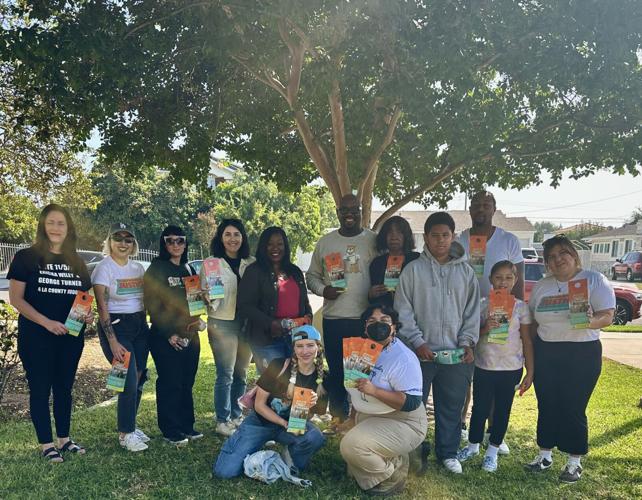

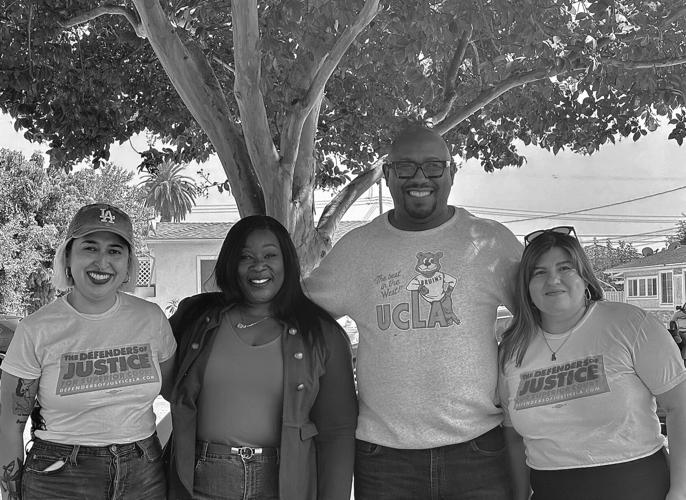
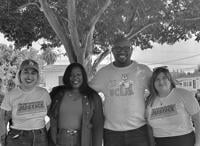

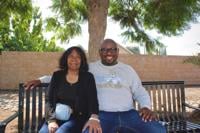

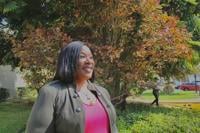
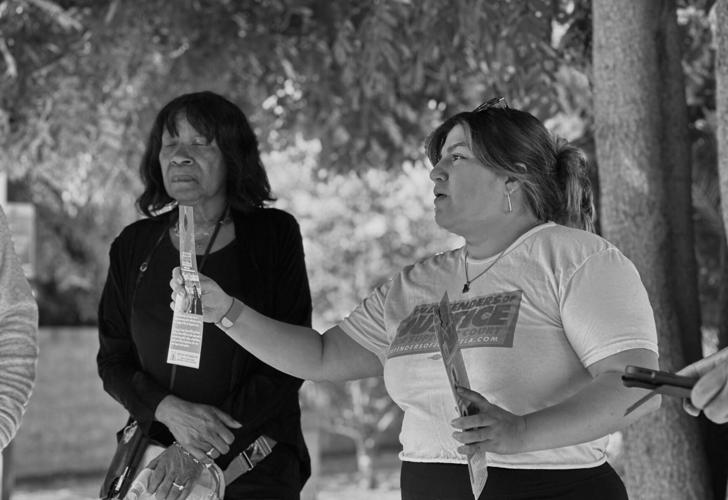
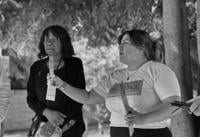



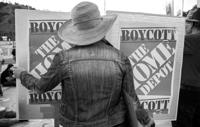

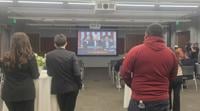


(0) comments
Welcome to the discussion.
Log In
Keep it Clean. Please avoid obscene, vulgar, lewd, racist or sexually-oriented language.
PLEASE TURN OFF YOUR CAPS LOCK.
Don't Threaten. Threats of harming another person will not be tolerated.
Be Truthful. Don't knowingly lie about anyone or anything.
Be Nice. No racism, sexism or any sort of -ism that is degrading to another person.
Be Proactive. Use the 'Report' link on each comment to let us know of abusive posts.
Share with Us. We'd love to hear eyewitness accounts, the history behind an article.